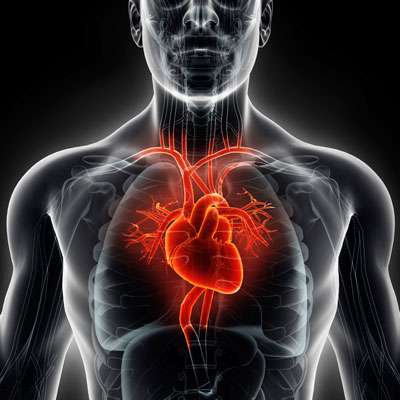5 Steps To A Heart-Healthy Lifestyle

Heart disease is the No. 1 killer for both men and women in America; 84 million Americans have one or more forms of it. It occurs when the arteries carrying blood to your heart muscle become narrow or blocked because of a buildup of cholesterol or fatty deposits.
When your heart can’t get enough blood, it becomes starved of oxygen and nutrients, which in turn can cause chest pain. That’s a sign of a heart attack.
You can’t control your family health history, your increasing age, or your race — all factors that influence your heart health. But there are five things you can control, says Via Christi cardiac specialist Rizwan Khalid, MD.
Dr. Khalid has spent decades studying the heart and is considered a regional expert, having completed extensive training in interventional cardiology with advanced imaging. In addition to working in the Via Christi Heart Center in Pittsburg, Kansas, he has completed numerous fellowships, has served in leadership roles, and accepts invitations to speak across the U.S. and globally.
1. Moderate consumption
“That’s the key — don’t ever say you’re going to consume zero of something,” Dr. Khalid says. “It’s very, very hard to completely eliminate something. Just reduce it. Decrease your red meat, eat more white meat. Create reasonable goals that you can adhere to. Eat a minimum of salt — that is, don’t add any — and you’ll gradually get used to it. That will reduce high blood pressure.”
“Reduce sugar, too. I’ve done it, and now I don’t even add it to my tea or coffee,” he says. “You’ll get used to it.”
2. Moderate exercise
“In addition to seeing high numbers of heart disease, we have almost an explosion now of diabetes,” Dr. Khalid says. “One thing we know helps is moderate exercise.”
He advises taking a Just take a leisurely walk three times a week around the yard or down the block, until it becomes a habit.
“Build up to a brisk pace over time, so you reach a higher heart rate,” Dr. Khalid says.
A bonus: People who exercise at least 150 minutes a week sleep better at night and feel more alert during the day.
3. More sleep, less stress
“Study after study shows that not getting enough sleep and getting too much stress negatively impacts your heart,” he says. “If you’re not getting enough sleep, you need to figure out why and adjust your schedule.”
According to studies by the National Sleep Foundation, adults need between 7 and 9 hours of quality sleep daily.
“Likewise, if you are experiencing a lot of stress, you need to examine why, and make some changes,” Dr. Khalid says.
4. Screenings
“People like to brag about not visiting a physician for so many years,” Dr. Khalid says. “That’s nothing to be proud of. You need to have regular screenings. A number of them show diseases and issues before they reach a high level. When we catch them early, they’re easier to treat and have less long-lasting impact.”
Screenings vary by age and gender, but include mammograms, prostate screenings, cholesterol tests, diabetes, and osteoporosis. Visit with your primary care physician to get screenings scheduled appropriate to your age and gender.
5. Eliminate smoking
“Smoking cigarettes is like taking a gun and shooting your foot,” Dr. Khalid said. “You can’t do anything about genetics, about what you inherit. But you can do something about smoking. It’s suicide.”
The Surgeon General has called cigarette smoking "the leading preventable cause of disease and deaths in the United States.”
It increases blood pressure, decreases exercise tolerance, and increases the ability for blood to clot. The sooner you quit, the sooner you lessen your chances.
Story Credit: https://www.viachristi.org/blog/5-steps-heart-healthy-lifestyle#sthash.olbIMdt8.dpbs


